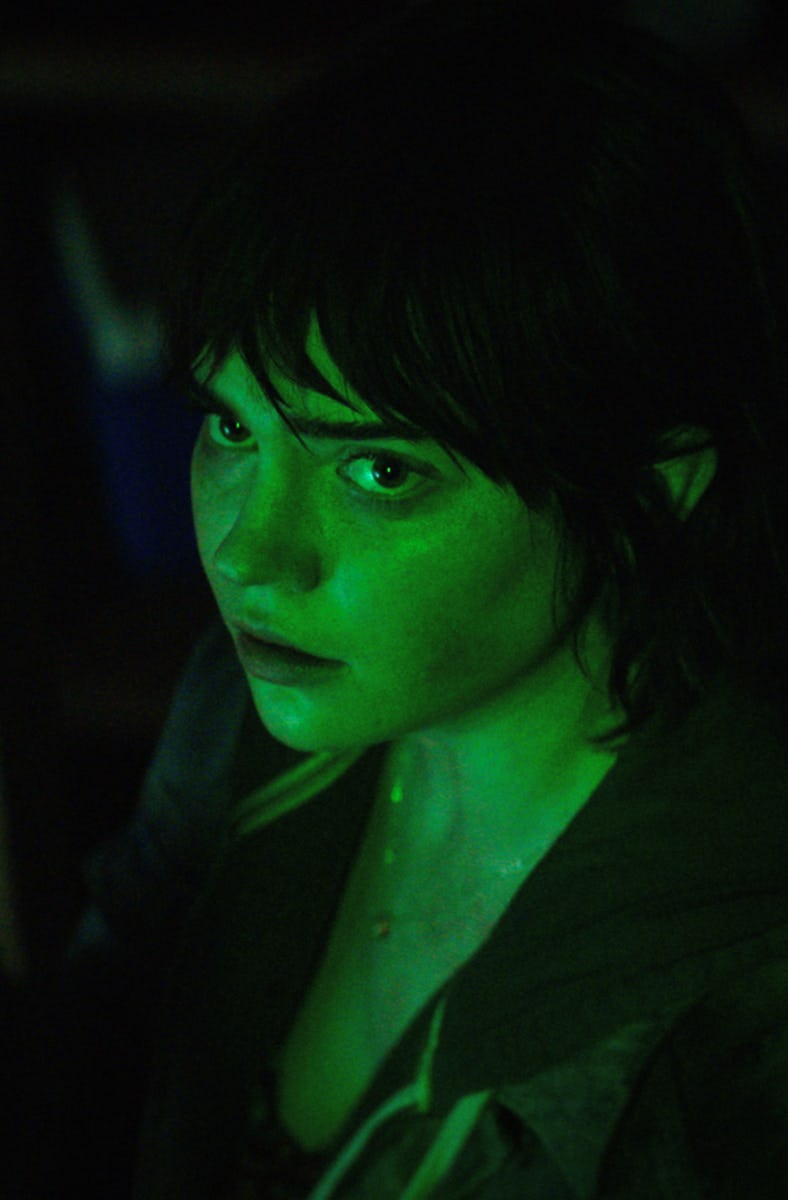The Boogeyman Has A Vital Message You Need to Hear
Director Rob Savage and star Sophie Thatcher discuss the new Stephen King horror movie’s powerful themes and meanings.

For a lot of people, therapy is downright terrifying. (It took everything the vile mob boss Tony Soprano had to vent once a week for an hour to the impassable Jennifer Melfi.) But despite the stigma attached to therapy, there are precious few thrillers that weaponize that terror to disturb and delight. Enter: The Boogeyman, a new horror movie based on the short story of the same title by Stephen King.
“Therapy is terrifying,” Boogyman director Rob Savage tells Inverse. “Opening yourself up is terrifying. Therapy is extremely exposing. It's about speaking to your inner darkness and not letting it fester and turn into something monstrous.”
King’s original story, also called The Boogeyman and first published in a 1973 issue of Cavalier magazine, takes place almost entirely in a therapy session in which a man named Lester Billings tells a psychiatrist the story of a monster that murdered his children — or so he claims. The new movie takes that concept and turns it into the opening scene of a 90-minute saga.
Rob Savage at the premiere of The Boogeyman.
Savage credits the movie’s original writers (Scott Beck and Bryan Woods) for cracking open the story, though he adds that the script changed plenty after he came on as director.
“They'd come up with this idea of having the short story basically be the inciting incident of a larger movie, having the Lester Billings character be this kind of harbinger of doom who comes in and infects the family with his demonic presence,” he says. “It felt like it was true to Stephen King and what he was discussing in his short story. We were building on those themes.”
The themes that define The Boogeyman aren’t typical summer blockbuster material. Riding the high of its opening scene between Lester and therapist Will Harper, the camera refocuses on the Harper family as they grieve the death of Will’s wife and struggle to share those emotions. Will’s two daughters process the loss of their mother in their own ways: Sadie (Sophie Thatcher) returns to high school wearing her mother’s dress and picks a fight with her old best friend, while the younger Sawyer has started to see “imaginary” monsters in her closet and under her bed. And despite being a professional therapist, Will is practically useless when it comes to helping his own children confront their emotions.
This being a Stephen King movie, however, the imaginary monster in Sawyer’s closet isn’t imaginary at all. It’s a primordial demon that feeds on sadness and haunts the Harper family in a string of popcorn-jostling jump scares. But even if The Boogeyman rarely slows down from its non-stop thrills, grief and trauma still underline every word of the 90-minute script.
David Dastmalchian as Lester Billings.
For Thatcher, it’s those relatable themes of grief and trauma that make The Boogeyman connect with audiences more than your average monster movie.
“At its core, the movie is about a family that is grieving,” the Yellowjackets star tells Inverse. “And I feel like building that realness and having something that everybody can relate to creates a connection within the viewer to the movie. You immediately put yourself in their shoes and that makes the movie more visceral and real.”
Of course, there’s a long history of using horror movies to tackle complex concepts, from the eco-terror of The Birds to the horror of genetic illness in Hereditary, but The Boogeyman feels particularly timely coming at the tail end of a global catastrophe.
“Horror is great about speaking to all the things that we don't really want to discuss, all the taboo subjects that we all think about and worry about but don't want to verbalize,” Savage says. “This really is a movie about mental health and leaning on other people and not isolating yourself when you're going through periods of trauma and grief.”
Sophie Thatcher with her on-screen sister Vivien Lyra Blair.
As for the monster itself, which hides in the shadows only to reveal its hideous face in a climactic final showdown, the metaphor cuts a bit deeper.
“The thing that I was really trying to lock into and what the creature really represents to me is the unspoken,” Savage continues. “It's about this family who are all going through their own individual grieving process but haven't figured out ways to communicate their own trauma.”
Thatcher sees this most clearly in Chris Messina’s character, a father who can’t talk to his children about the trauma they’ve all experienced.
“It's interesting that the dad is a therapist, but he's the least willing to open up and connect with his own daughters,” she says.
In her own life, Thatcher says she isn’t afraid of therapy, and she hopes The Boogeyman will encourage more people to seek it out themselves.
“It's nice to just have a professional to talk to where you don't feel like you have to apologize to your friends for venting or anything,” she says. “It just depends on the person. It can be scary to be open. It's a very scary thing, but therapy can normalize that.”